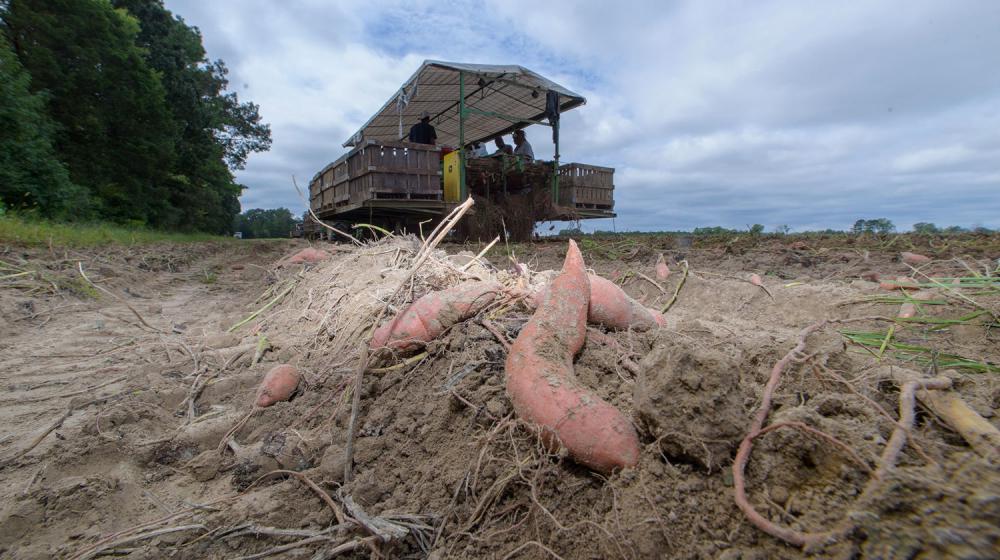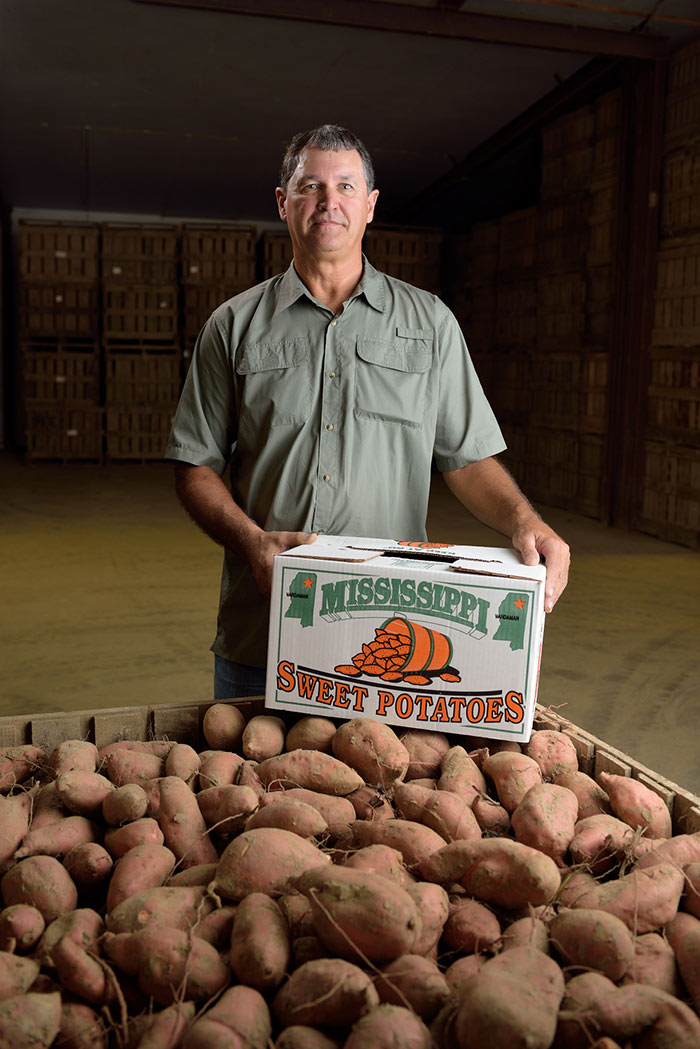Sweets in Production

Sweet potatoes are harvested at Earp Farms in Houlka, Mississippi.
Producer receives Extension information and support
Story by Michaela Parker • Photos by Kevin Hudson
After growing up on a family sweet potato farm, Jamie Earp left thinking farming just wasn’t for him. However, he shortly realized that working at Earp Farms in Houlka, Mississippi, was exactly where he was meant to be.
In 1995, Earp and his brother, Ricky, returned to the family farm in Chickasaw County to help their father with sweet potato production. The Earp brothers bought the farm in 1997 and became its leaders in producing more than 5 million pounds of sweet potatoes annually.
Jamie Earp
Day after day, the brothers spend time together on the farm harvesting, digging, and testing sweet potatoes. They even eat all their meals together. It’s also not uncommon to see the Earp wives, Joy and Diana, helping on the farm in any way they can.
“Growing sweet potatoes takes a team effort each and every day,” Earp says. “It’s definitely a labor-intensive crop from start to finish.”
During harvest, the team gets started at 6 a.m. to get harvesters ready for the 9-hour workday ahead. First, a de-viner is used to remove the top vines off the row. Once the de-vining process is complete, a group of eight harvesters size potatoes in the field to be hauled to storage before being shipped out.

sweet potatoes.
Outside the farm, Earp has been a prominent leader in the sweet potato industry. He serves as president of the Mississippi Sweet Potato Council and, in 2014, served as president of the U.S. Sweet Potato Council.
Even with his decades of running one of the larger sweet potato farms in the area and years of industry leadership, Earp sometimes needs assistance. In those cases, he knows where to turn.
Earp credits the Mississippi State University Extension Service for helping solve tricky problems. For example, when he encountered nutsedge weeds on his farm, he called Extension.
Dr. Steven Meyers, Extension sweet potato specialist, worked alongside Earp to learn more about and combat the issue.
“Jamie had a nutsedge field with a sweet potato problem,” Meyers laughs. “There’s not a lot of research on nutsedge weeds, so he allowed Extension to use his farm for experiments. From a research side, it was useful because we can’t mimic those conditions on other farms.”
Dr. Scott Cagle, Extension agent in Chickasaw County, has also worked with Earp. Over the past 16 years, Cagle has watched and applauded Earp’s leadership in agriculture and his relationship with Extension.
“Jamie has been a big supporter of what we do through Extension,” Cagle says. “He’s always willing to support 4-H and help other farmers in the area in any way he can.”
To Meyers, Earp is a perfect example of how Extension is supposed to work for producers. Earp uses the information provided by the Extension Service to better his farm, improve his yields, and increase his profits.
“We can’t get out and solve all these problems on our own because we’re so busy with the farming aspect of growing sweet potatoes,” Earp says. “Extension is a great tool for us to have. They’re a direct link to a wealth of information, and that’s been a big help for us at Earp Farms.”


